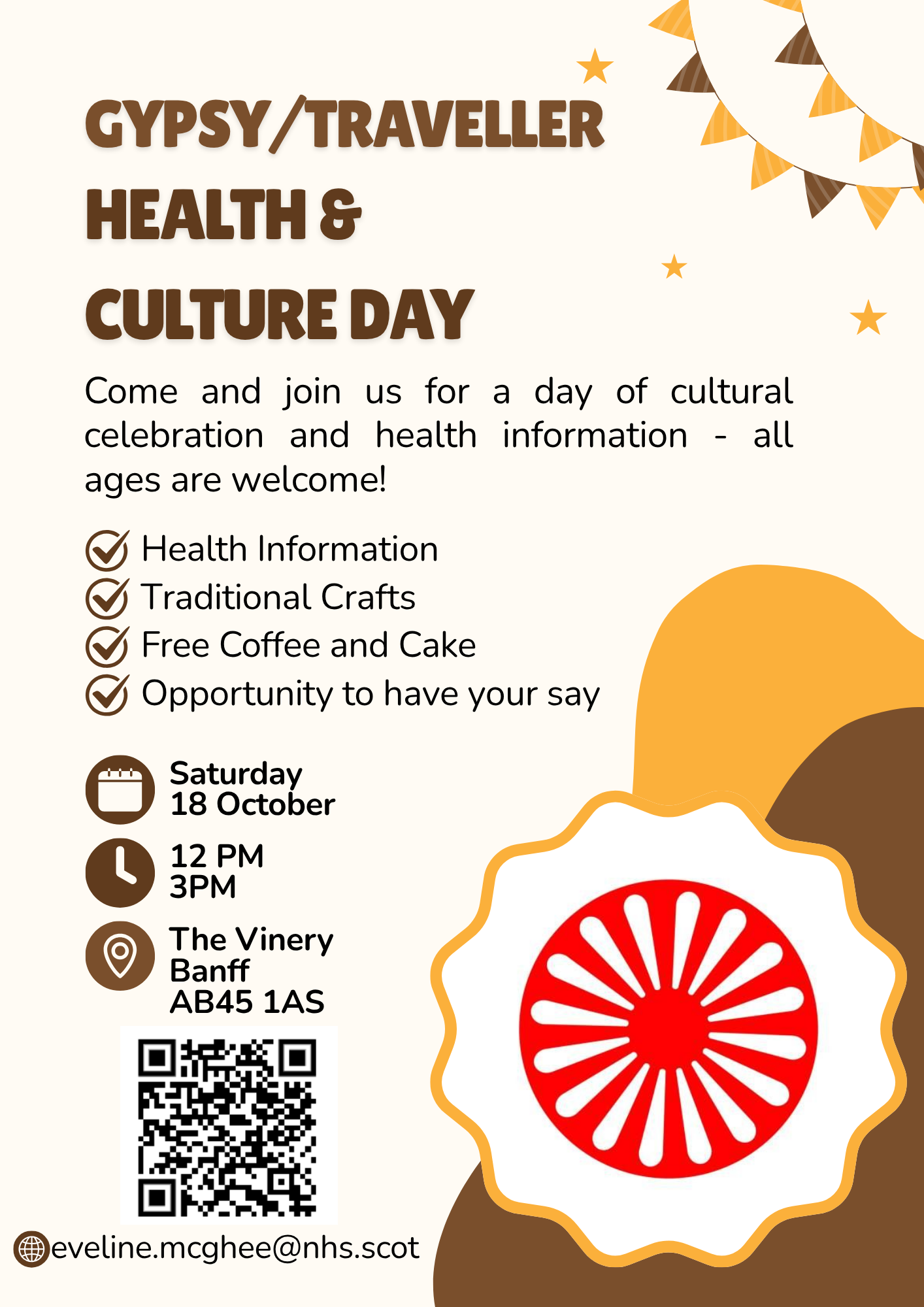Gypsy, Roma and Traveller Health

NHS Grampian has been working to understand how we can help Gypsy, Roma and Traveller communities to live healthier lives and access health services more easily.
The result of this work is called a Health Needs Assessment and you can listen to the results in the video below.
You can read the results below.
We would like to thank Gypsy/Travellers across Grampian who gave up their time to inform this assessment.
👥 Who are GRT?
GRT stands for Gypsy, Roma and Traveller. It includes groups like Irish Travellers, Scottish Travellers, English Gypsies, Romany Gypsies, Roma, Showpeople, New Age Travellers, and Bargees. Many have a tradition of travelling, even if they now live in houses. GRT people are one of the most disadvantaged ethnic groups in Scotland and often have poorer health.
🎯 What was the aim?
This work looked at the health needs of GRT people in Grampian. It focused on six key areas:
- Vaccinations
- Health screening
- Women’s health
- Mental health
- GP and community services
- Long-term illnesses like diabetes
We also wanted to give recommendations to improve support.
🔍 How was it done?
There is not much health data about GRT people. We used:
- Published research
- Census and vaccination data
- Conversations with GRT people
We worked with MECOPP, a charity that supports ethnic minorities. We visited sites and spoke with residents. We also did a survey with help from Gypsy/Traveller liaison officers.
📊 What did we find?
👶 Population
Around 900 GRT people live in Grampian. The GRT population is younger than average.
🏠 Accommodation
Most GRT people live in houses or flats, not caravans. There are 3 travelling sites in Grampian. One site, Aikey Brae, has poor facilities that we recognise need to be improved. Gypsy/Travellers in Grampian want to see more travelling sites.
📚 Education
GRT children have low school attendance and high exclusion rates. Barriers include bullying, lack of cultural understanding, and feeling school is not useful. Low literacy affects access to health care.
💼 Employment
GRT people have higher unemployment than others. Many are self-employed and want more support with business skills.
💉 Vaccinations
GRT children have lower vaccination rates. HPV vaccine uptake is low because it is given in secondary school, which many GRT children do not attend.
🔬 Screening
Screening (early checks for health conditions) is not well known. Women are more likely to take part than men.
👩⚕️ Women’s Health
GRT women have poorer health and higher death rates than other groups. Maternity care is a concern that the NHS are looking into further.
❤️ Mental Health
GRT people report more mental health problems. This is linked to discrimination and being forced to live settled lives. Suicide rates, especially for men, are higher.
♿ Long-Term Conditions
Many GRT people live with disabilities. More GRT people say their health is bad or very bad. Many also give unpaid care to others.
🏥 GP Services
GRT people value their GPs and like seeing the same doctor. Some face discrimination when registering with a new GP. Blue GP access cards help GRT people register.
👂Going Forward
We have created some suggestions for change but would like to hear your thoughts. Please share your thoughts by following this link or telling us in person at the health day.
If you would like more information, the full summary can be read here.
Published: 05/11/2025 15:05